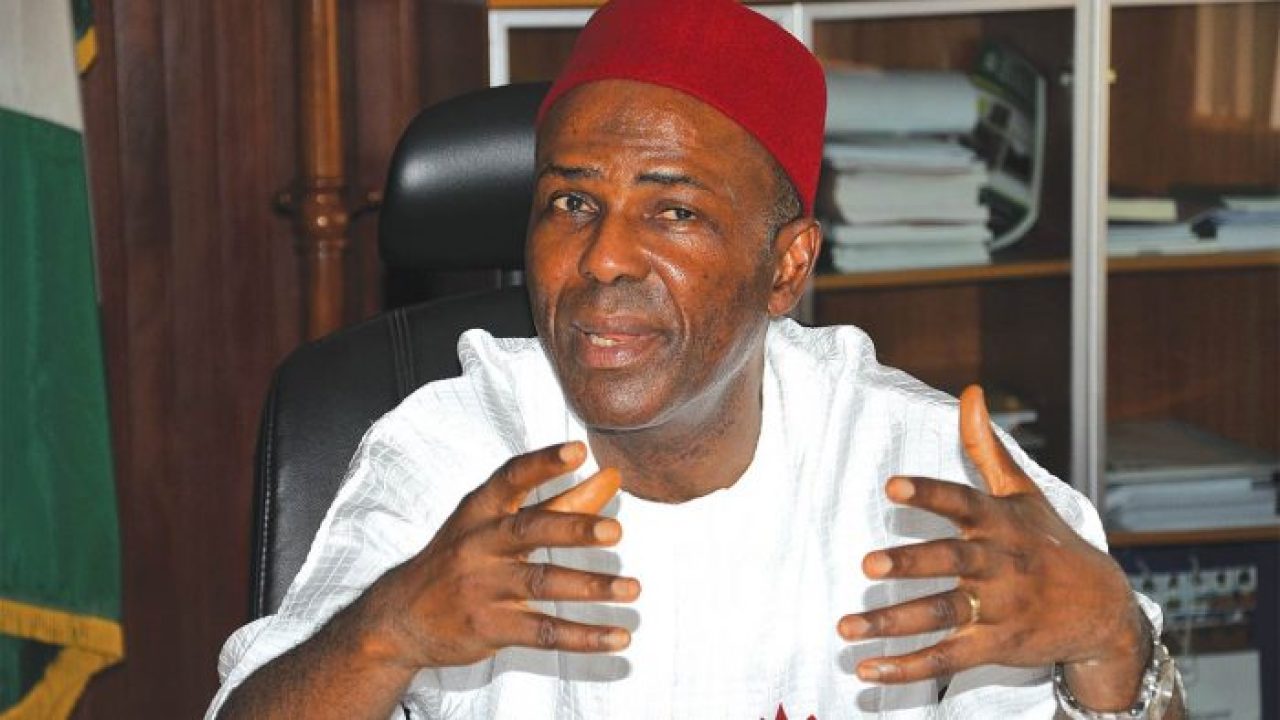Covid-19: CBN, Banks to revamp Nigeria’s economy with injection of N3.5trn

…To support 12 local pharmaceutical coys to fight Coronavirus
In order to curtail the impact of Coronavirus in the country, the Governor, Central Bank of Nigeria (CBN), Mr. Godwin Emefiele, has said the apex bank in collaboration with Bankers Committee are set to revamp the nation’s economy with N3.5 trillion intervention funds.

This is just as the CBN and the Banks chiefs have identified 12 Nigeria based pharmaceutical companies that will be supported to produce local drugs and other medical needs to tackle the dreaded COVID-19.
The Committee reached the consensus at a meeting presided over by the CBN Governor, Mr. Godwin Emefiele, in Lagos at the weekend.
A communiqué issued after the meeting stated that the CBN governor said that the combination measures put together amounts to over N3.5 trillion in stimulus to the nation’s economy to ameliorate the pains arising from the Coronavirus (COVID-19) health and economic crisis.
He highlighted the measures to include Interest rate reduction on intervention facilities from nine per cent to five per cent; Creation of N50 billion targeted credit facility for affected households & SMEs; Granting regulatory forbearance to banks to restructure terms of facilities in affected sectors and strengthening the LDR policy, which is encouraging significant extra lending from banks.
Other includes improving FX supply to the CBN by directing all Oil companies (international and domestic) and all related companies (oil services) to sell FX to CBN and no long NNPC; Activation of the N1.5 trillion infraCo projects for building critical infrastructure; additional N100 billion intervention in healthcare loans to pharmaceutical companies, healthcare practitioners intending to expand/build capacity and N1 trillion in loans to boost local manufacturing and production across critical sectors.
READ ALSO: Ezekwesili urges NASS to summon Buhari to speak on Coronavirus, its shock on global economy
He expressed further that, “Given that this crisis is first and foremost a public health crisis, we are paying particular attention to our health industry.
“As aforementioned, global supply chains have been disrupted including dominant drug supply channels from China and India.
“In fact, many countries have or are planning to ban the export of drugs and medical supplies from their countries. Clearly, we have no choice but to produce these items locally.
“Thus, the committee has identified a few key local pharmaceutical companies who shall be granted naira and FX funding facilities to support procurement of raw materials and equipment required to exponentially increase local drug production in Nigeria.
“These include but are not limited to Emzor, Fidson, GSK, May & Baker, Unique Pharma, Swiss Pharma, Neimeth, Sagar, Orange Drugs, Dana Pharma, among others.”
He said the bankers committee noted the success of the CBN’s 43 items policy and encouraged it to strengthen the policy and other measures targeted at export promotion and import substitution to position the nation as a key global producer and build a self-sufficient economy.
He explained that in the view of significant disruption of the global supply chains, the bankers committee advises Nigerians and companies to begin prioritising their import needs and focus more on sourcing raw materials and inputs locally.
Meanwhile, Emefiele has said the apex bank adjusted the price and not devalue the local currency as speculated by market stakeholders.
In view of this, the CBN had directed that Bureaux de Change (BDC) operators in the country must not sell dollars higher than N380 to end-users.
This is compared to the previous N360/$ exchange rate that was adopted in 2016.
A memo signed by Director of the apex bank’s Trade and Exchange Department, O.S. Nnaji, addressed to banks and BDC operators, states: “Please be advised that the applicable exchange rate for the disbursements of proceeds of International money transfer service operators (IMTOs) for the period Monday, March 23 to Friday, March 27, 2020 is as follows: IMTSOs to banks: N376/$1; Banks to CBN: N377/$1; CBN to BDCs: N378/$1; BDCs to end-users: Not more than N380 and Volume of sale to each market is $20,000 per BDC.
“Kindly note that the GBP rate should be derived from the USD cross rate on the date of the sale.’
It was also gathered that the CBN rate of N307/$ and concessionary rates such as N325 and N330 were abolished.
In addition, all international oil companies would be required to sell their FX incomes to CBN at N360/$ as against the N325/$, they used to sell to the Nigerian National Petroleum Corporation (NNPC).
The CBN also unified the BDC segment rate with that of the investors and exporters window where the naira traded at N380/$ on Friday.
Meanwhile, as with the prior week, the nation’s foreign reserves dipped by $193.83 million to $35.98 billion (20 Mar 2020), as the CBN sustained its support for the currency across the different strata of foreign exchange windows.
Nonetheless, the naira remained under pressure, weakening by 0.95 per cent week-on-week to N372.00/$ at the Investors & Exporters (I&E) window, but strengthened by 1.3 per cent to N375.00/$ in the parallel market.
“Looking ahead, we expect FX market volatility to persist in the short to medium term as lower oil earnings, together with the deceleration in FX reserves continue to induce speculative attacks on the naira. In the longer term, an extended lower oil price environment will eventually force the CBN to reprice the naira,” analysts at Cordros capital explained.







